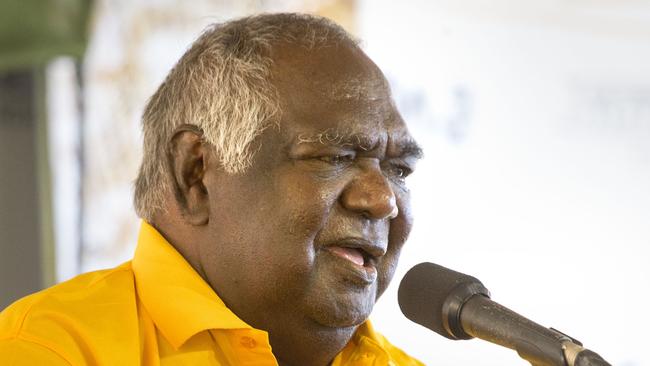Yolngu seek bauxite mining compo
The Yolngu people are planing a compensation claim against the government over bauxite mining on the Gove Peninsula.

The Yolngu people are planning to make a compensation claim against the federal government over bauxite mining on the Gove Peninsula, more than 50 years after they painted their objections to the first mineral leases on their homelands in the famous Yirrkala bark petitions.
The people of northeast Arnhem Land are the latest indigenous group to claim compensation for buildings, works or mining after the Federal Court ruled in March that the Northern Territory government must pay the people of Timber Creek $2.5 million for loss of native title.
The Territory government was found to have committed 53 offences on that land, including laying water pipes and building a water tank. It was the first time the compensation provisions of the Native Title Act had been used, and it was quickly predicted that thousands of claims could cost government and business billions.
Attorney-General Christian Porter has appeared to indicate that the federal government would prefer that compensation claims were dealt with individually following the Timber Creek judgment. But the National Native Title Council is attempting to make broad agreements with the state, territory and federal governments that would settle the matter of compensation and avoid further court cases.
In the meantime, native title holders such as the Yolngu are entitled to seek compensation in individual cases in the Federal Court. They are taking the federal government to court because it was the government that issued the mining leases, which were originally issued to Swiss miner Nabalco but were taken over by mining giant Rio Tinto in 2007.
Gumatj clan leader Galarrwuy Yunupingu, one of the fathers of the land rights movement, told the Garma festival audience at the weekend that he would go to court for his people this year, perhaps in the next two months.
“The mining companies have come to Gove Peninsula without asking properly of the land holders,” he said. “They have all come getting OK from the prime minister and the government of the country to come all the way up and starting digging and insulting the country. (They) have ripped some land unmercifully. They have damaged our country without seeking advice to us and they have damaged a lot of dreaming — dreaming that are important to Aboriginal people.”
Dr Yunupingu’s father, Mungurrawuy Yunupingu, was a senior clan leader and one of 12 signatories to the 1963 bark petitions that appealed to the Australian government after it excised parts of the land of the Yolngu people of Yirrkala for mining leases.
The petitions stated the land had “been hunting and food gathering land for the Yirrkala tribes from time immemorial” and “that places sacred to the Yirrkala people, as well as vital to their livelihood are in the excised land”.
They are considered the first formal assertion of native title.
The petitions were unsuccessful but hang in Parliament House because they ultimately led to land rights laws.
Dr Yunupingu was later an interpreter for his people in the watershed Gove land rights case. His people have in recent years become bauxite miners too.
The Yolngu’s small operation provides jobs for local people and the trees they clear to make way for mining are milled and sold as planks for building. The Yolngu keep some of the timber to make their own houses. They also make their own bricks.




To join the conversation, please log in. Don't have an account? Register
Join the conversation, you are commenting as Logout